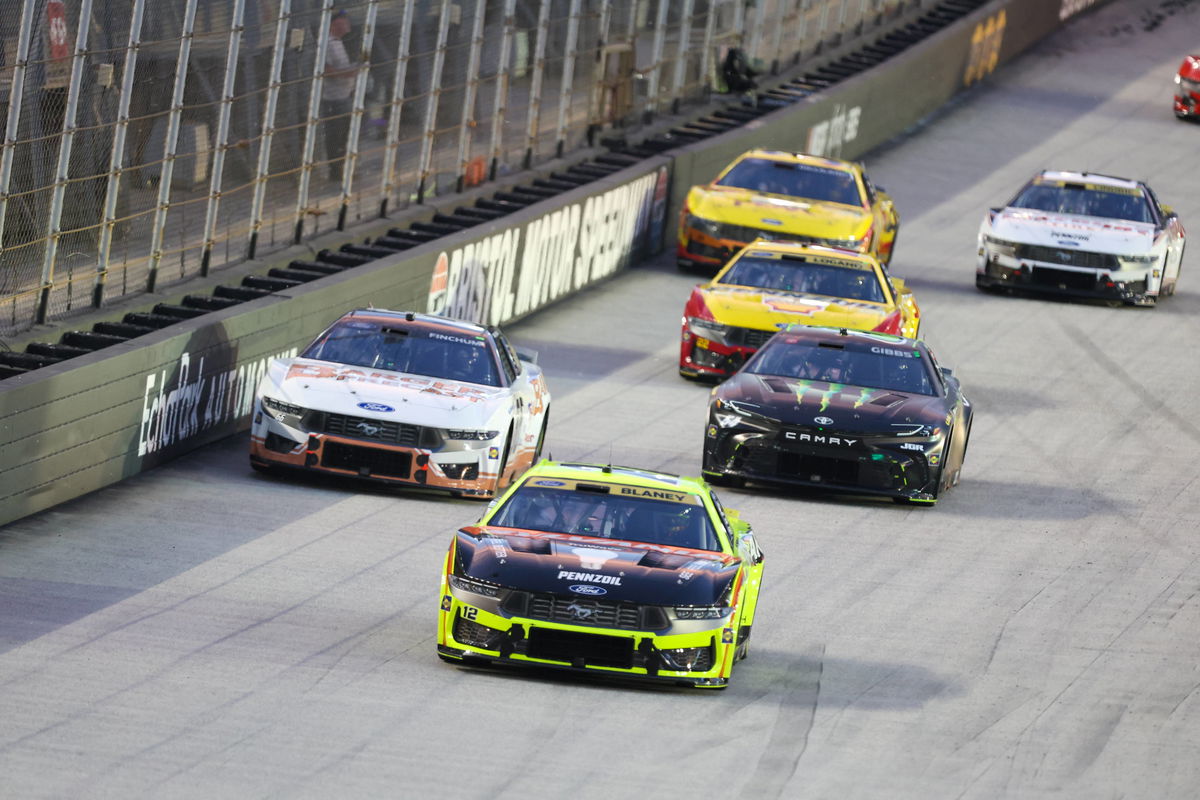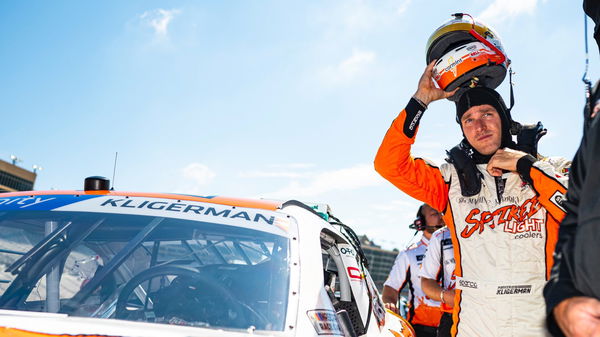
Imago
NASCAR, Motorsport, USA Bass Pro Shops Night Race Sep 13, 2025 Bristol, Tennessee, USA NASCAR Cup Series driver Ryan Blaney 12 leads a pack of cars into turn 3 during the Bass Pro Shops Night Race at Bristol Motor Speedway. Bristol Bristol Motor Speedway Tennessee USA, EDITORIAL USE ONLY PUBLICATIONxINxGERxSUIxAUTxONLY Copyright: xRandyxSartinx 20250913_kdn_bs1_396

Imago
NASCAR, Motorsport, USA Bass Pro Shops Night Race Sep 13, 2025 Bristol, Tennessee, USA NASCAR Cup Series driver Ryan Blaney 12 leads a pack of cars into turn 3 during the Bass Pro Shops Night Race at Bristol Motor Speedway. Bristol Bristol Motor Speedway Tennessee USA, EDITORIAL USE ONLY PUBLICATIONxINxGERxSUIxAUTxONLY Copyright: xRandyxSartinx 20250913_kdn_bs1_396
Talk of ditching the current playoffs for a full-season points battle has heated up in the NASCAR garage lately. Dale Earnhardt Jr. recently stated the odds of it happening are 30 to 40%, up from 2% earlier this year. So now drivers and insiders are buzzing about how it could reward steady performance over late drama, echoing the pre-2004 days when consistency crowned champs. Yet as momentum builds, safety talks from today’s NASCAR era linger, quietly shaping the debate.
Watch What’s Trending Now!
NASCAR’s safety net has evolved sharply since then, with protocols rolled out in 2013 mandating baseline concussion tests for all national series drivers to spot hidden injuries early. And expansions in 2017 added on-site neurological support and standardized screenings after wrecks. These steps highlight how modern racing prioritizes long-term health over ol’ fashioned grit. But what happens when those safeguards clash with the 36-race points system, if implemented?
Hidden health issue in a full-season revival
On a recent episode of The Money Lap podcast, NASCAR veteran Parker Kligerman dove into the full-season chatter, spotlighting an issue many fans overlook. As a driver-turned-analyst with 30 Cup starts, Kligerman knows the track’s toll intimately. He pointed out that while manufacturer rivalries grab headlines, the sport’s concussion rules, which were nonexistent in the pre-2004 era, now force tough calls.
“The concussion protocol did not exist back in the full-season era,” Kligerman noted, recalling how drivers like Dale Earnhardt Jr. once fought it out silently after 2002’s Daytona crash, racing through symptoms for weeks before admitting the health issue.
As the current format grants waivers under a few conditions, Kligerman warned of the flip side in a waiver-free format. “If you go back to a full season right now with this concussion protocol now and then, you know, that’s here now. You could be put in a position where you are taken out of the car, and it wasn’t your choice,” he said, underscoring the subjective “I don’t feel right” trigger that does not allow drivers to race despite their say.
Dale Jr.’s unwillingness stemmed from a no-miss-races reality, where admitting to a health issue can ruin the championship title chase. Fast-forward to today: protocols demand baseline ImPACT testing pre-season, comparing post-crash results for objective reads on memory, reaction time, and more.

Imago
via Imago
Kligerman here highlights the strength of the rules that prioritize health over emotions and the intent of the driver, where if a driver is not medically fit to race, they’re forced to withdraw, even if they want to race. And thus the chances of winning the title will then be thin too. Take Kurt Busch in 2022 as an example. His crash during qualifying at Pocono led to four missed races, which became a big factor in his eventual retirement from the Cup Series.
Denny Hamlin captured this protective edge back in 2013, when concussion rules first kicked in: “They sometimes have to protect us from ourselves. But we also want to make sure we’re racing on the track with people that are 100 percent. I’m all for that. I think it’s important we keep safety first.”
His words rang true amid early pushback, like Brad Keselowski‘s gripes that doctors “don’t understand our sport.” Yet Hamlin’s take proved cautious; sub-concussive medical issues may build up into some bigger health issues, turning a single wreck into a much bigger problem without mandated checks.
In a full-season push, ditching waivers could revive that silence where drivers may race with unreported health issues, especially with Next Gen’s stiffer chassis, which NASCAR fans have already seen in 2022, when Kurt Busch and Alex Bowman were sidelined. This ‘concussion protocol’ isn’t just mere talk. It could rewrite which drivers will compete from one week to the next.
Heim’s current playoff fury
Corey Heim wrapped his 2025 Truck Series season with a jaw-dropping 11 wins in 24 starts, snagging seven poles and 21 stage victories along the way. Heim has dominated, with 18 top-fives and just two finishes outside the top 20. However, heading into Phoenix’s Championship 4, he vented frustration over a format that resets the points table. It lets one-time winners steal the show, sidelining guys who’ve shown domination with wins all year.
“You can kind of suck all year and bring your best truck to Phoenix, and you can win the whole championship. It doesn’t matter how good you’ve been all year.” His complaint fits a pattern: defending champ Ty Majeski has zero wins but nine top-fives; still, he has a shot at winning the title if he wins only Phoenix.
Heim’s team has been showing consistent performance since the beginning of the season, but the current playoff system boiled it down to one race where a single lap may crush his title hopes. For example, like his 2023 crash in Phoenix with Carson Hocevar while leading, which cost him a possible title.
“Like we’ve won 11 races this year,” Heim continued. “We’ve proven everything to this point, and now all someone has to go do is go into Turn 1 and absolutely wipe you out… and that proves that they’re the best driver? That’s kind of my main gripe.” That’s a genuine take from a 22-year-old who has climbed fast, from Xfinity rookie duties to Truck contention.
The system in place since 2016 for Trucks favors survival over consistency, supporting one-win wonders like Tyler Ankrum after his 130-race drought breaker. In 2024, Heim raced smart at Phoenix but finished second because of a mid-race restart violation, costing him another title. It’s not hard to see why the 22-year-old is frustrated, but is he making an honest point? Let us know in the comments!






